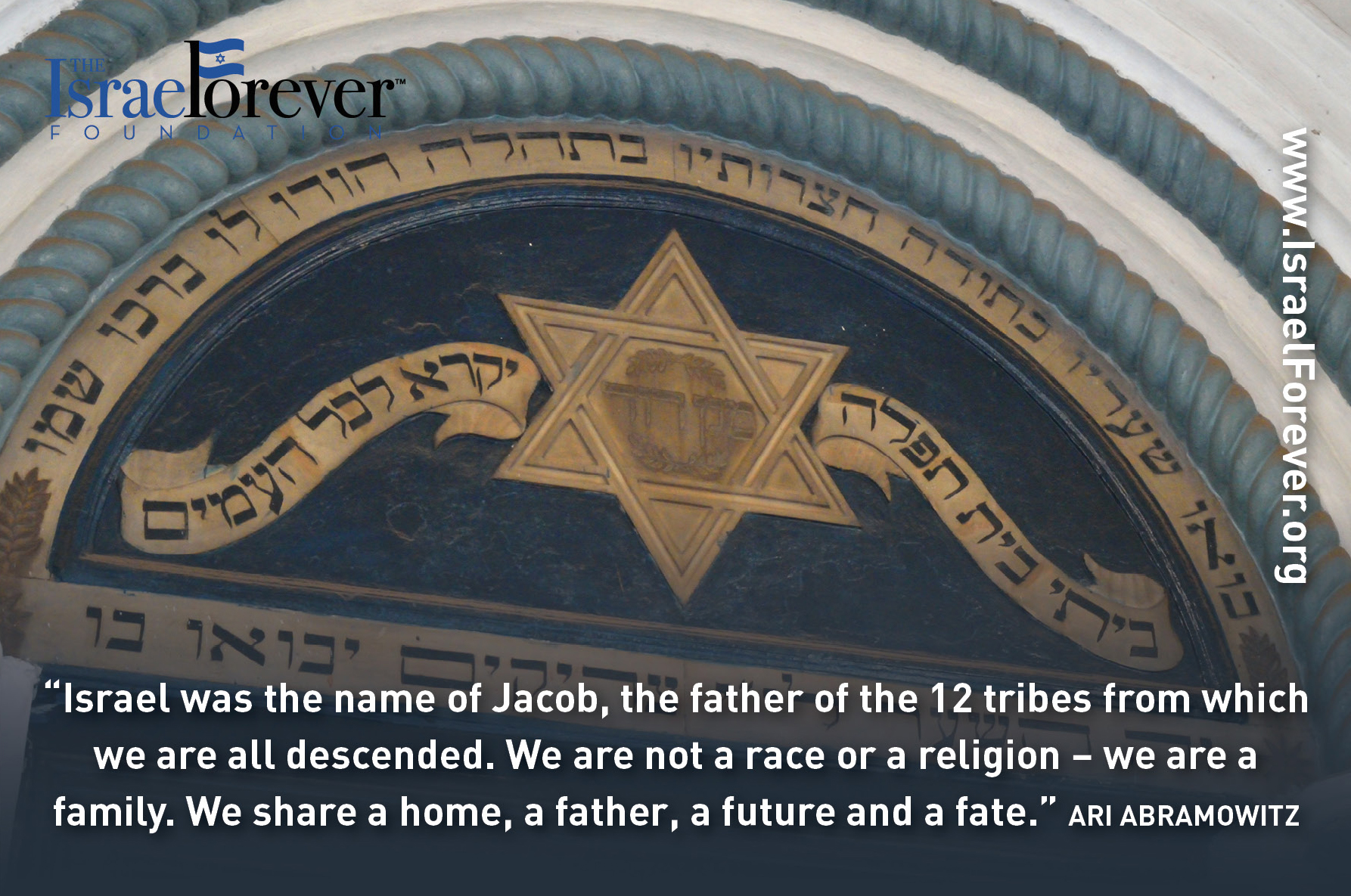Standing Alone, Together - Parashat Balak
The following excerpts about Parshat Balak give us insight into a number of topics that emerge from this powerful story of a king determined to destroy the Jewish People. Read with friends at your Shabbat table and discuss the food for thought questions below for a unique exploration of important topics that relate to our lives today.
From Rabbi Gideon Sylvester, “Balaam Speaking of Israel”:
This week’s parsha tells the story of Balaam the man who prostituted his prophetic abilities for kings who wished to attack the Jewish people. We watch with a mixture of horror and delight as he sets off to curse the Jewish people and finds himself outsmarted by his donkey; a dumb animal whose prophetic instincts surpass his own.
As the nineteenth century Biblical commentator Rabbi S. R. Hirsch puts it, “He wants to bring about the ruin of a whole nation with his words, but finds himself forced to concede that his rage is impotent even when directed against a mere animal”(Rabbi Hirsh commentary to Bamidbar 23:22).
Clambering up rocks and hills to look down upon the camp of Israel, Balaam helps us to find perspective on our nation. He describes us as “a people who dwell apart, that cannot be counted among the nations” (Bamidbar 23:9). Rabbi Hirsch explains that the Jewish people will live in its circumscribed territory not looking to show off our power, but rather to focus on our own spiritual mission.
Rashi sees in Balaam’s prophecies a foreshadowing of our fate, a people whose ancestral roots point to our moral fortitude, a people who must stand alone in defending its moral principles and a people who will outlast their critics (Rashi’s commentary to Bamidbar 23:9).

It takes courage to stand alone. Not every Jew manages it. Commenting on our verse, the nineteenth century head of the Volozhin Yeshiva, the Netziv cites a series of historical examples in which the Jews distanced themselves from their people, traditions and culture to curry favour with other nations. In each case, it rebounded and they ended up rejected by those to whom they sought to ingratiate themselves.
When Israel is under sustained and unprovoked attack from Hamas, Hezbollah, Syria and Iran, Jewish Human Rights activists take on a dual role. As ever, we must protect and promote human rights throughout our country, but our human rights agenda must also prioritise defending the right of Israelis to live in safety.
Balaam warns us that public criticism of Israel is so often uncalled for, undignified, and inappropriate. We must stand united as a people who dwells alone; striving to live peacefully in our historic homeland.
FOOD FOR THOUGHT:
- How does the story of Balaam relate to Israel’s right to live in safety?
- In what ways must today’s Jewish people understand our history to become stronger?
- What does “a people that stands alone” really look like?
From Rabbi Zalman Baruch Melamed, “The ‘Good Eye’ of Israel”:
Balaam was a Prophet with extraordinary spiritual powers. Regarding Moses, the Torah states, "there never arose another Prophet like Moses in Israel."
On this verse, the Sages explain that "in Israel there indeed never arose [another Prophet like Moses], but among the nations there arose [another Prophet like Moses]. This was in order that the nations not be permitted to say, ‘If only we had had a prophet like Moses we ourselves would have become faithful servants of the Almighty.’ And which Prophet did they have who was like Moses? Balaam ben Beor."
Balaam, then, possessed impressive spiritual facets, yet when it came to character traits, he was depraved. "They are wise to do evil, but to do good they have no knowledge" (Jeremiah 4:22). When one is morally corrupt, spiritual power is steered into negative channels. Regarding Israel, though, admirable character traits are an integral part of their makeup; they are fixed in the Jewish soul.

A "good eye" implies, an affectionate attitude and a positive approach to everything in creation. A "humble spirit" means just that - humility. Possessing a "meek soul" means resisting passions. If we examine the words of the Torah we can discern Balaam’s arrogance and strong physical appetite. He says to Balak’s emissaries, "God does not allow me to go with you." - With you, no; with others more important than you, yes. Balaam chases honor. Later, Balaam says, "Even if Balak gave mere his whole palace full of gold and silver, I would not be able to do anything great or small that would violate the word of God my Lord." From here we can see that, personally, Balaam is interested in attaining the gold and silver. The only thing preventing him is God’s command.
The Talmud (Sanhedrin 105a) lists all those people who have no portion in the World to Come, among them Balaam. While the Talmud describes the actions of each one who has no portion in the World to Come, it goes on at exceptional length in describing the actions of Balaam. Balaam’s deficiency is ingrained, and it so powerful that it nullifies the entire value of his great powers.
"God then opened the donkey’s mouth" (Numbers 22:28). Here it is being hinted to the great Prophet Balaam, whose principal power lay in his speech, that the power of speech is a gift from God. If God so desires, even this great orator must remain silent, and the donkey, who knows not how to speak, opens its mouth.
The Torah describes to us how the donkey carried Balaam down a wide road with space on both sides. Later, though, the animal is unable to turn to the left or the right. No doubt this description hints at some important idea which we should attempt to understand. The Sages explain these things as follows (BeMidbar Rabba 20:14):
"What are these signs? If he were to desire cursing the offspring of Abraham, he would find on one side the children of Ishmael and on the other side the children of Keturah; if he were to desire cursing the children of Isaac he would find on one side the children of Esau and be pushed up against the wall. Among the children of Jacob he found no unworthy individuals to strike at. Therefore it says on the third occasion (Numbers 22:26), ‘[God’s angel...stood] in a narrow place, [where there was no room to turn right or left].’ This refers to Jacob, as the verse says (Genesis 32:7): ‘Jacob was very frightened and distressed...’ for he found no way to turn right or left - i.e., he found no unworthy individuals among Jacob’s children."

Balaam wishes to strike at the very root of the nation of Israel - its forefathers. It is possible for him to strike at the progeny of Abraham for it contains unworthy individuals: Ishmael on the one hand and Keturah’s offspring on the other. It is even possible for him to curse the children of our forefather Isaac, on the side of Esau. Yet when it comes to the offspring Jacob he has no choice but to bless them, for there are no unworthy individuals among them.
Balaam wanted to curse but ended up blessing. Each one of his blessings teaches us something about the special qualities of the Jewish people.
Rabbi Yehudah Liva, the renowned Maharal of Prague, explains the nature of Israel’s humility. He informs us that it constitutes subservience to the will of the Almighty. It entails a readying of the character traits to receive the divine abundance, like the earth which needs to be prepared in order for it to receive the seed and to cause it to sprout. Israel’s strength is the result of this divine abundance which the Jewish people merit by virtue of their humility.
While in exile, the Jews upheld the Torah and the Mitzvoth. Yet, all of a sudden, upon returning to the Holy Land, the nation began to rebel against the Torah. An extreme faith crisis took hold of the Jewish people - liberalism the likes of which Israel has never known, a throwing off of the Yoke of Torah, and contempt for all that is sacred. And the irony about it is the fact that it is happening now, of all times, after the Jewish people have finally reached their peaceful destination.

In our generation as well, with the return of Israel to the Holy Land and the process of national bonding with all levels of its sanctity, the nation is called upon to undergo severe spiritual trials. Out of these trials will come a great communion with God, inner recognition to the point of natural identification with the way of the Torah - repentance from love.
FOOD FOR THOUGHT:
- What does Balaam teach us about the nature of the Jewish people?
- How can we express the unique role of the Jewish people today?







